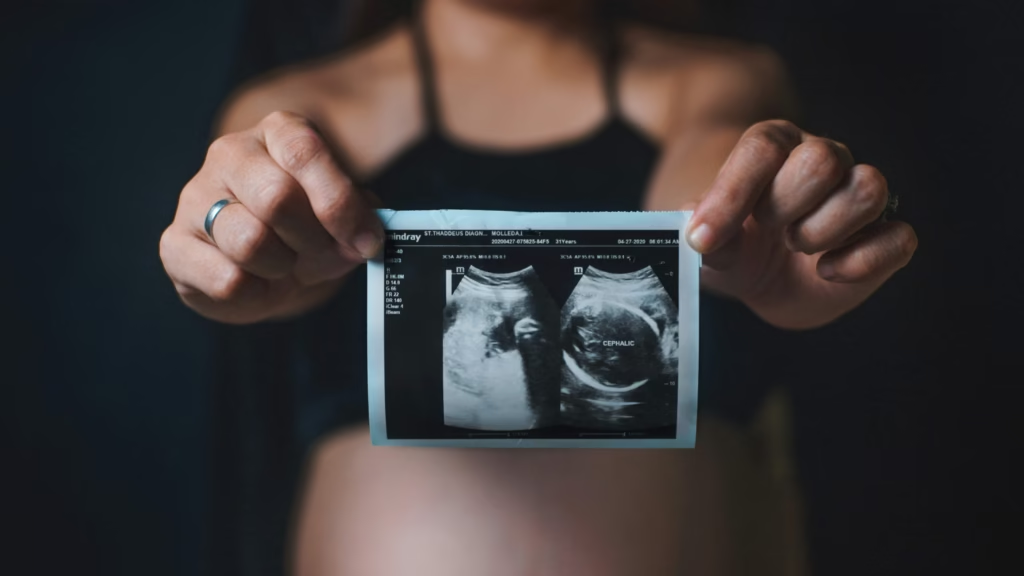Introduction
Did you know that more than 85,000 IVF cycles involving egg retrieval procedures are performed annually in the United States alone? This critical step in the fertility treatment journey represents a pivotal moment of hope for countless individuals and couples pursuing their dreams of building a family. The egg retrieval procedure stands as the culmination of weeks of preparation, serving as the bridge between stimulation protocols and the creation of embryos. Whether you’re personally undergoing this procedure, supporting someone who is, or considering becoming an egg donor, understanding each step of the egg retrieval procedure can significantly reduce anxiety and help ensure the best possible outcome.
What Is Egg Retrieval Procedure?
The egg retrieval procedure, also known as oocyte retrieval or follicular aspiration, is a minimally invasive surgical procedure performed to collect mature eggs from the ovaries. This procedure is a fundamental component of assisted reproductive technologies (ART), including in vitro fertilization (IVF) and egg donation programs. During an egg retrieval procedure, a fertility specialist uses ultrasound guidance and a thin needle to carefully extract eggs from the follicles that have developed in response to hormone stimulation.
The procedure typically takes place in a fertility clinic’s procedure room and lasts approximately 20-30 minutes. It represents the crucial transition point between the ovarian stimulation phase and fertilization, where collected eggs are either combined with sperm in the laboratory or frozen for future use.
Why It Matters
The egg retrieval procedure holds profound significance across various dimensions of the fertility journey:
Medical Significance: The quality and quantity of eggs retrieved directly impact success rates for pregnancy. Research published in the Journal of Assisted Reproduction and Genetics indicates that retrieving an optimal number of eggs (typically between 10-15) correlates with higher live birth rates in IVF cycles.
Emotional Impact: For individuals undergoing fertility treatment, the egg retrieval procedure represents a culmination of hope, determination, and medical intervention. The procedure can evoke a complex range of emotions from anxiety to excitement.
Financial Considerations: Given that a single IVF cycle can cost between $12,000-$15,000, the egg retrieval procedure represents a significant milestone in this financial investment. Success at this stage is crucial for the overall cost-effectiveness of treatment.
Diversity of Family Building: The egg retrieval procedure serves diverse family structures, including heterosexual couples facing infertility, same-sex male couples working with gestational carriers, single intended parents, and those requiring donor eggs due to various medical conditions. The procedure’s versatility makes it central to inclusive family-building options.
The Process
Before the Egg Retrieval Procedure
Ovarian Stimulation: For 8-14 days prior to retrieval, you’ll receive injectable fertility medications to stimulate your ovaries to produce multiple eggs rather than the single egg typically released during a natural cycle.
Monitoring Appointments: Throughout stimulation, you’ll attend frequent monitoring appointments (every 2-3 days) for blood tests and transvaginal ultrasounds to track follicle development.
Trigger Shot: When follicles reach optimal size (typically 18-22mm), you’ll receive a “trigger shot” of human chorionic gonadotropin (hCG) or GnRH agonist to finalize egg maturation, precisely timed 34-36 hours before the scheduled retrieval.
Pre-Procedure Instructions: You’ll receive specific guidelines about fasting (usually nothing to eat or drink for 8-10 hours before), medication adjustments, and arrival time.
During the Egg Retrieval Procedure
Anesthesia Administration: The procedure begins with either conscious sedation or general anesthesia to ensure your comfort. Most patients receive intravenous sedation that allows them to sleep through the procedure without requiring breathing assistance.
Positioning and Preparation: You’ll be positioned comfortably on an exam table with your legs in stirrups, similar to a gynecological exam. The vaginal area will be cleansed with an antiseptic solution.
Ultrasound Guidance: Your reproductive endocrinologist will use a transvaginal ultrasound probe with a needle guide attached to visualize the ovaries and follicles.
Follicular Aspiration: A thin needle is passed through the vaginal wall into each follicle, and gentle suction is applied to remove the fluid containing the eggs. The fertility specialist systematically accesses each mature follicle.
Laboratory Coordination: As follicular fluid is aspirated, an embryologist immediately examines it under a microscope to identify and isolate the eggs, confirming their successful retrieval.
After the Egg Retrieval Procedure
Recovery Period: You’ll rest in a recovery area for 1-2 hours as the sedation wears off. Vital signs will be monitored during this time.
Same-Day Results: Before discharge, you’ll receive information about how many eggs were successfully retrieved.
Post-Procedure Care: You’ll need someone to drive you home, and you should plan to rest for the remainder of the day.
Next Steps Communication: Within 24 hours, the embryology team will provide an update on egg maturity and, if applicable, fertilization results.
Benefits and Considerations
Benefits
High Success Rates: Modern egg retrieval procedures typically yield 10-20 eggs per cycle in optimal candidates, maximizing chances for successful fertilization and embryo development.
Safety Profile: Complications from egg retrieval procedures are rare, occurring in less than 1% of cases according to the American Society for Reproductive Medicine (ASRM).
Minimal Recovery Time: Most individuals resume normal activities within 24-48 hours, making the procedure relatively convenient even for those with busy schedules.
Fertility Preservation: For those facing cancer treatments or wishing to delay childbearing, egg retrieval provides the opportunity to freeze eggs for future use with minimal decline in viability when properly cryopreserved.
Considerations
Physical Discomfort: Following the procedure, you may experience cramping, bloating, and spotting for several days. These symptoms typically resolve quickly with proper rest and hydration.
Ovarian Hyperstimulation Syndrome (OHSS): In approximately 1-5% of cycles, individuals may develop OHSS, a condition where ovaries become swollen and painful. Severe cases may require hospitalization, though preventative protocols have significantly reduced this risk.
Emotional Aspects: The anticipation before retrieval and waiting for fertilization results afterward can be emotionally challenging. Having appropriate support systems in place is essential.
Financial Investment: Without insurance coverage, the egg retrieval procedure and associated medications represent a significant portion of IVF treatment costs, typically ranging from $5,000-$7,000 for the retrieval component alone.
Common Misconceptions
Myth 1: Egg retrieval procedures are extremely painful
Reality: While discomfort varies between individuals, most report minimal pain during the procedure itself due to sedation or anesthesia. Post-procedure discomfort is generally mild to moderate and manageable with over-the-counter pain relievers. A 2019 study in Fertility and Sterility found that 85% of patients rated their pain as 3 or lower on a 10-point scale the day after retrieval.
Myth 2: All retrieved eggs will become viable embryos
Reality: Not all retrieved eggs are mature or will successfully fertilize. On average, approximately 70-85% of retrieved eggs are mature, and of those, about 70-80% fertilize successfully. This natural attrition means that from 15 eggs, you might expect 7-10 viable embryos, highlighting why retrieving multiple eggs is important.
Myth 3: Egg retrieval depletes your ovarian reserve
Reality: The egg retrieval procedure only collects eggs that would have otherwise been lost during that menstrual cycle. Research confirms that controlled ovarian stimulation and egg retrieval do not accelerate ovarian aging or deplete the primordial follicle pool that determines your reproductive lifespan.
Myth 4: Egg retrieval always results in hospitalization
Reality: Egg retrieval is an outpatient procedure typically lasting less than 30 minutes, with a recovery period of 1-2 hours. Most patients return home the same day and resume normal activities within 24-48 hours.
Myth 5: You need to take weeks off work for the procedure
Reality: Most individuals only need to take the day of the procedure off work. Some may choose to take the following day as well, but extended time off is rarely necessary unless complications occur.
Legal and Ethical Aspects
The egg retrieval procedure involves several important legal and ethical considerations that vary significantly by location:
Informed Consent: Prior to undergoing an egg retrieval procedure, comprehensive informed consent is legally required. This includes detailed discussions about the procedure’s risks, benefits, and alternatives.
Geographic Variations: In the United States, regulations governing egg retrieval procedures vary by state. For example, states like California, New York, and Illinois have comprehensive insurance coverage mandates for fertility treatments, while others provide minimal coverage. Internationally, countries like Spain, Greece, and the Czech Republic have become popular destinations for egg donation due to their regulatory frameworks that balance donor anonymity with recipient needs.
Compensation Considerations: For egg donors, compensation for the egg retrieval procedure varies widely. The American Society for Reproductive Medicine suggests appropriate compensation should acknowledge the time, discomfort, and risks associated with the egg retrieval procedure without creating undue inducement. Current guidelines suggest compensation ranging from $5,000-$10,000 per donation cycle is ethically appropriate.
Storage Decisions: Following egg retrieval, decisions about freezing unused eggs or embryos carry legal implications regarding future disposition. Clear legal agreements should be established before the procedure addressing potential scenarios including relationship changes, death, or divorce.
Support and Resources
Professional Support
Mental Health Professionals: Many fertility clinics have dedicated counselors specializing in the emotional aspects of treatment. Schedule a consultation before your egg retrieval procedure to develop coping strategies.
Fertility Nurse Coordinators: These specialists can provide detailed guidance about medications, timelines, and what to expect during the egg retrieval procedure.
Acupuncture Services: Some studies suggest acupuncture before and after egg retrieval may help improve comfort and potentially outcomes. Many fertility clinics have partnerships with reproductive acupuncturists.
Community Resources
Resolve: The National Infertility Association offers support groups specifically for those undergoing egg retrieval procedures and other fertility treatments (resolve.org).
The Egg Donor & Surrogate Support Group provides community for those considering or having completed egg donation (eggdonor.com/support).
FertilityIQ offers clinic reviews and detailed information about the egg retrieval procedure from patient perspectives (fertilityiq.com).
Educational Resources
“It Starts with the Egg” by Rebecca Fett provides evidence-based recommendations for optimizing egg quality before retrieval.
The Fertility Podcast offers episodes specifically addressing egg retrieval experiences and tips for success.
The American Society for Reproductive Medicine (ASRM) patient resources section contains medically-reviewed information about egg retrieval procedures (asrm.org/topics/patient-resources/).
Conclusion
The egg retrieval procedure represents a pivotal moment in fertility treatment—a carefully orchestrated process that combines medical expertise, personal preparation, and technological precision. Understanding each step of this journey empowers you to approach your egg retrieval procedure with confidence and realistic expectations. Whether you’re pursuing egg retrieval as part of your own fertility treatment or as an egg donor helping others build their families, the information, resources, and support available today make this process more accessible and successful than ever before.
Remember that while the egg retrieval procedure itself lasts only minutes, its impact can be life-changing. By working closely with your healthcare team, leveraging available resources, and maintaining self-care throughout the process, you position yourself for the best possible experience and outcomes. Whatever your fertility goals, the egg retrieval procedure serves as a powerful tool in making those dreams achievable.
Frequently Asked Questions
How many eggs are typically retrieved during an egg retrieval procedure?
The number varies widely based on age, ovarian reserve, and response to stimulation medications. On average, women under 35 with normal fertility parameters might expect 10-15 eggs, while those over 40 might retrieve 5-10 eggs. Egg donors typically produce higher numbers, often 15-25 eggs per retrieval cycle.
How painful is the egg retrieval procedure?
The procedure itself isn’t painful as it’s performed under sedation or anesthesia. After the egg retrieval procedure, most patients experience mild to moderate cramping similar to menstrual cramps, which typically resolves within 24-48 hours and can be managed with over-the-counter pain medication.
How long does it take to recover from an egg retrieval procedure?
Most patients resume normal activities within 24-48 hours after the egg retrieval procedure. However, strenuous exercise, swimming, and sexual activity should be avoided for about a week to minimize the risk of complications.
What are the risks of the egg retrieval procedure?
Serious complications are rare, occurring in less than 1% of cases. Potential risks include bleeding, infection, damage to surrounding structures, and ovarian hyperstimulation syndrome (OHSS). Your fertility specialist will discuss your personal risk factors before the procedure.
Will the egg retrieval procedure affect my future fertility?
No, the egg retrieval procedure does not impact your future fertility. The procedure only collects eggs that would have naturally been lost during that particular menstrual cycle. Your body continues to recruit and develop new eggs from your remaining follicle pool in subsequent cycles.
When will I know if my egg retrieval procedure was successful?
You’ll receive initial information about the number of eggs retrieved before leaving the fertility clinic. Within 24 hours, you’ll learn how many eggs were mature, and if pursuing immediate fertilization, how many successfully fertilized. Final success is measured by the number of healthy embryos developed or pregnancies achieved.







